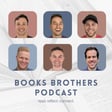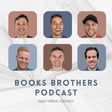
S3.E1 - Blue Zones - Preface - Sardinia
This week, Adam leads our discussion of the Preface - Chapter 2 from Blue Zones, Second Edition: 9 Lessons for Living Longer From the People Who’ve Lived the Longest by Dan Buettner.
- Preface (1:53 - 3:55)
Why did we choose to read Blue Zones?
- Chapter 1: “The Truth About Living Longer” - (3:56 - 14:26)
Which responses from the doctors interviewed about aging and living long were most interesting?
- Chapter 2: “The Sardinian Blue Zone” - (14:27 - 33:04)
What can we learn about the Sardinian blue zone as it relates to our life? (14:27 - 26:02)
Is there anything about the Sardinians that inspired you that you will try to incorporate into your daily routine? (26:03 - 33:04)
- Resources referenced or discussed in today’s episode:
1. Studies related to Adam’s comment about health risks of those who exercise but are sedentary the remainder of the day
- American Journal of Epidemiology study: click here
- National Library of Medicine study: click here
2. Netflix documentary series: Live to 100: Secrets of the Blue Zones
Next week we’ll discuss chapter 3: “The Okinawa Blue Zone” (pages 65 - 119)
You can buy the book on Amazon by clicking here.
You can also borrow it at your local library. Don’t have a library card, or unsure where your local library is? Search on Google Maps, or find your local library by clicking here.
Follow us on Instagram @booksbrotherspodcast
Connect with us at connect@booksbrotherspodcast.com.
Please subscribe and give us a review! We would really appreciate it.
See you next week! Until then - read, reflect, and connect.


